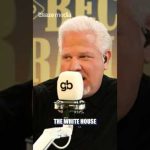In the United Kingdom, a troubling trend is unfolding as free speech appears to be under siege. The once-respected bastion of open discourse is now witnessing a significant crackdown on what can be said, particularly online. With reports indicating that police are making approximately 30 arrests per day for offensive online messages, one must wonder about the implications for free expression. This alarming statistic suggests that thousands are being detained or questioned for causing mere ‘annoyance’ or ‘inconvenience’ through their words.
The underlying tension centers on a broader crackdown under vague laws criminalizing messages that cause annoyance or inconvenience. This situation stifles debate and breeds a culture of self-censorship, undermining the dialogues central to a free society. Critics have warned of this slippery slope, emphasizing the need to resist such encroachments before the right to dissent is extinguished.
Beyond free speech, cultural shifts within the UK are sparking widespread concern. Discomfort over national symbols like the British flag highlights a broader unease within certain communities. Critics argue that attempts to scrutinize displays of the flag due to perceived offensiveness overlook the notion of national unity and pride. Instead, such actions are seen as capitulations to those uncomfortable with the host nation’s identity, rather than encouraging integration.
However, these developments are not confined to the UK. They serve as cautionary tales for nations like the United States, where similar tensions are emerging. The challenge lies in articulating a robust defense of free speech without being mislabeled. Advocates must stress that supporting open discourse doesn’t imply endorsement of hate, but rather a commitment to airing views openly to prevent centralized control over expression.
To maintain a cohesive society, it is vital to embrace shared symbols and values. The flag, for instance, should be a unifying emblem irrespective of background. Without these commonalities, communities risk fracturing into segregated enclaves. As cultural diversity grows, so too does the importance of finding the threads that bind, rather than divide, societies. As history shows, the erosion of these shared values can lead down a perilous path, which is why vigilance and advocacy for free expression are more crucial than ever.




